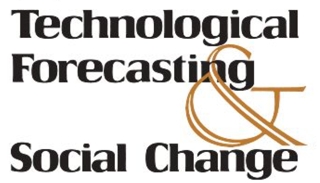 We are very pleased to announce a Special Issue on “Discontinuous innovation for a more Abundant World” in Technological Forecasting and Social Change.
We are very pleased to announce a Special Issue on “Discontinuous innovation for a more Abundant World” in Technological Forecasting and Social Change.
Many have written about potential disruptive technologies but few have written about their result – discontinuous innovations. Discontinuous innovations not only change user behavior but often cause transformational societal change. Technologies form the basis for change but it is their vehicle “physical products, service products or process innovations” which people adopt and are the true agents of social change.But what is Abundance anyway? Why should any embrace it? It is not a hypothesis. Rather Abundance is a concept based on “Abundant economics” and it is opposed to what many see as “Scarcity economics”. It is more of an attitude towards technology and the future. It is a partial response to the grand challenges facing the 21st century by focusing exponential technology development on them. The 21st century grand challenges have been posited by many but all include at least six. They include: healthcare; water, education; food generation, energy, and the environment. These solutions can transform society for not only people at the “Bottom of the Pyramid” or the “Bottom Billion” but also help to reestablish a vibrant and growing middle class. Abundance addresses economics thought initially brought by Rawls in “A theory of Justice’ where all social primary goods – liberty and opportunity, income and wealth, and the bases of self-respect – are to be distributed equally unless an unequal distribution of any or all of these goods is to the advantage of the least favored.
Potentially disruptive technologies like nanotechnologies, microsystems, genetics, deep learning, the internet of things (IoT), Big Data, among others can help transform societies but also come with perceptional, policy and technological boundaries that limit their ability to generate transformative change. Many are pessimistic about the future but others (Ted, Abundance, Bold, MANCEF, Singularity University, X prizes) see an abundant future where entrepreneurs, small and medium enterprises (SME), and large firms will create new products and processes generating new jobs and wealth. Products made from disruptive technologies that have the ability to eliminate the current world challenges often created by 20th century developed products and the technology that generated them. We need managerial practice to adapt to these 21st century needs. We need relevant research to generate qualitative and quantitative works and models to help make discontinuous innovations from any source a reality.
Here we aim to stimulate theory and understanding about discontinuous innovations (products and processes) based on potential disruptive emerging technologies that will contribute to a more Abundant World. We invite papers for a special issue on Discontinuous innovation for a more Abundant World. Sample topics include, but are not limited to, the following:
- What are the ways we can provide clarity to the concept of discontinuous innovation?
- What can lean entrepreneurial action contribute to technology push commercialization based on exponentially expanding technologies?
- Can management theory on discontinuous innovations based on multiple root technologies be advanced?
- Can bibliometric methodologies be improved to move from data to knowledge for discontinuous innovation insertion?
- How can new manufacturing techniques (processes) like additive manufacturing move us from mass production to mass customization of discontinuous innovations and be used to move high consequence products through the validation and verification (V) curve?
- How can products based on disruptive technologies be more quickly inserted into the market (consumer, retail, industrial, high consequence)?
- How can we upgrade the commercial development “Expeditionary Marketing” from a concept to a operational practice?
- In what way do discontinuous innovations contribute to promote a sustainable society (environmental, manufacturing, quality of life)?
- How we can optimize the security and surety issues in adopting big data analytics?
Can the internet of things (IoT) help solve the world’s grand challenges facing the new millennium? - How can firms of any size alter their strategic thought to embrace discontinuous innovation?
We are interested in a wide range of papers including case based, qualitative and quantitative research. Abstract submissions are due to the editors by February 7, 2017. We request an initial abstract to review for acceptability to our special issue of between 250 and 500 words. You will receive prompt response to your articles potential acceptability for the special issue. We welcome a variety of approaches to research that can direct us to innovative solutions. Information on scope and style requirements is available at:
http://www.elsevier.com/wps/find/journaldescription.cws_home/422925/authorinstructions
Key Dates:
February 7, 2017: Abstract submission
May 10, 2017: Submission of full paper to be discussed at workshop
Anticipated date of publication is 2017 / 2018
Submissions can be made to any of the special issue editors below on the Technological Forecasting and Social Change website.
Co-editors for the special issue
Dr. Nazrul Islam, University of Exeter Business School, University of Exeter, Exeter, UK
n.islam@exeter.ac.uk
Dr. Rainer Harms, Dutch Institute for Knowledge Intensive Entrepreneurship (NIKOS), University of Twente, Enschede, Netherlands
r.harms@utwente.nl
Dr. Matthias Fink, Johannes Kepler University Linz, Institute for Innovation Management (IFI), Austria and Institute for International Management Practice, ARU Cambridge, UK, matthias.fink@jku.at
Managing Area editor for the special issue
Dr. Steven Walsh, University of New Mexico, Albuquerque, NM and Dutch Institute for Knowledge Intensive Entrepreneurship (NIKOS), University of Twente, Enschede, Netherland, swalsh91@comcast.net
